GameChangers
James Evans is Amplifying Marginalized Voices in Animal Welfare
CARE, the first national animal welfare organization of color in the country, focuses not just on pets, but their owners—addressing issues that negatively impact brown and Black communities.
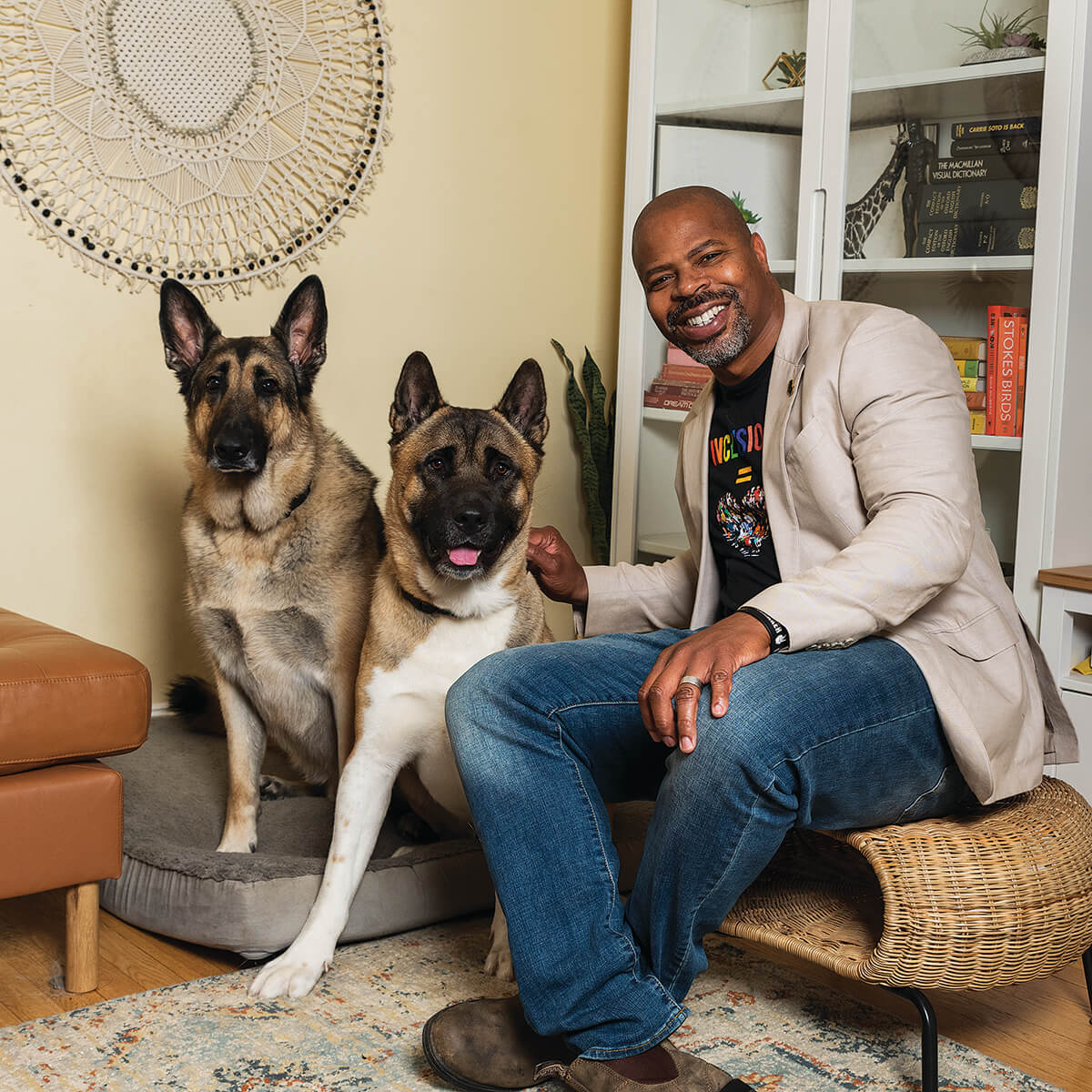
It makes perfect sense that James Evans’ life is filled with dogs. Guapo, a German Shepherd, and Rocky, an American Akita, occupy a lot of space in his Rodgers Forge home with their (big) personalities, (big) beds, (big) crates, and (big) appetites.
“I’ve been an insane dog lover and pet lover for as long as I can remember,” says Evans, the founder and chief executive officer of Companions and Animals for Reform and Equity (CARE), who grew up in Park Heights and attended Baltimore School for the Arts.
And while it seems Evans was destined for a career that involved animals, his schooling drew him into a more creative field, landing a job at illume, a marketing
and communications firm, where he produced design work for Timberland, Safe Streets Baltimore, Kennedy Krieger Institute, and the NAACP, among many others. After the Humane Society of the United States (HSUS) asked his team to put together a spay/neuter campaign post-Hurricane Katrina, the lightbulb moment came when he started noticing systematic inequity in pet ownership.
“There were no people of color that were part of the system,” says Evans. “No one of color leading national animal welfare organizations, animal control policies, or shelters.”
This was especially concerning since “animal control then and now targets brown and Black communities.”
The marketing campaign he did in New Orleans led to HSUS creating Pets for Life, a spay/neuter program that also supplies pet food, vaccinations, and other animal resources for pet owners in underserved communities. Thanks to grants and donors, Pets for Life has performed more than 100,000 free spay/neuter surgeries.
Evans and his team—mostly made up of people of color—felt proud of the program that they had played such a large role in creating, but ultimately HSUS decided to run the program internally.
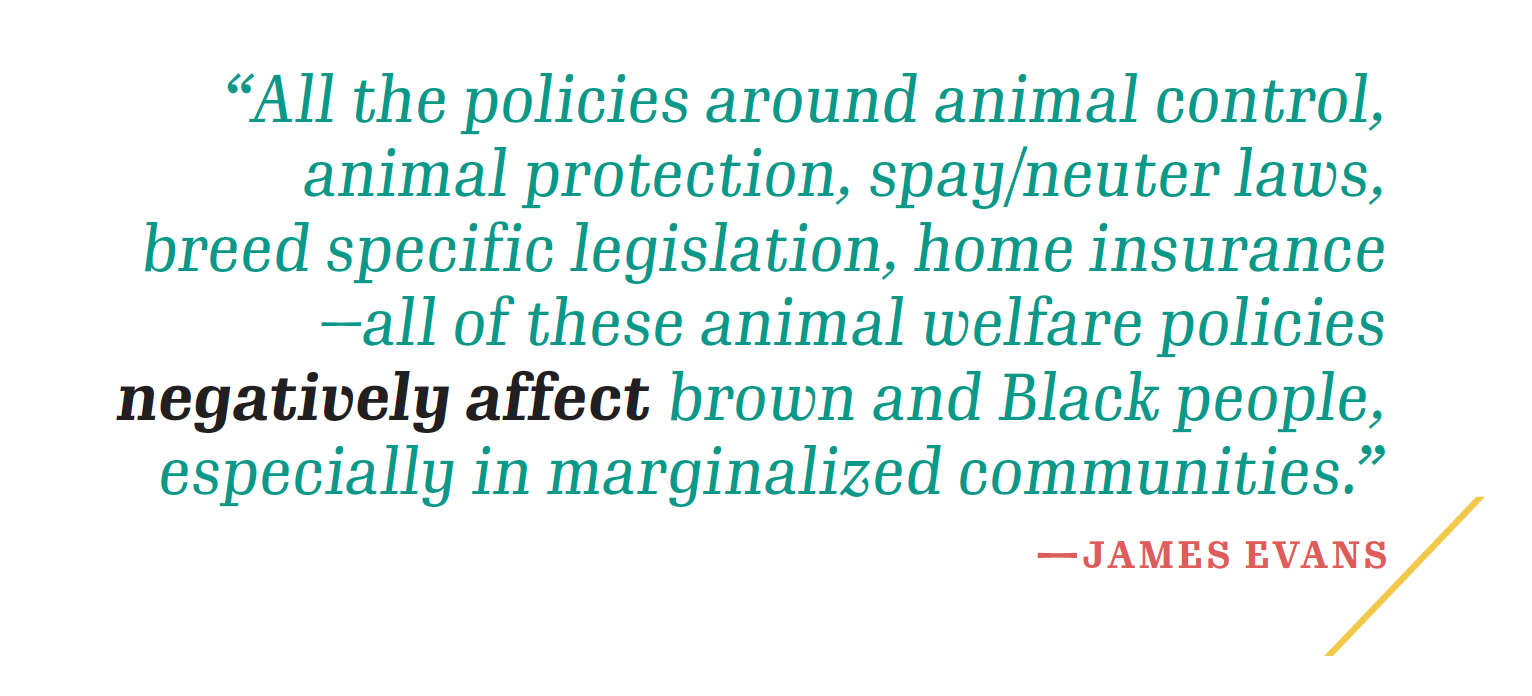

Life returned to normal for Evans until 2019 when a woman named Chetana Mirle reached out. She explained that she was the program director for The Life of Riley, a group that advances animal welfare by investing in diverse leadership and community-driven solutions. “And she said, ‘You know, there are a great many people in animal welfare who said I should speak to you because I’m interested in finding someone who can bring more BIPOC people to the field.’”
Mirle told Evans she’d often find herself in rooms without any other BIPOC (Black, Indigenous, People of Color) colleagues and she started wondering why that was. Evans empathized but figured that was the extent of the call.
“I wasn’t upset with her,” he says. “I was upset with the idea that we keep talking about inclusion, but no one was really doing anything about it, which is what I told her.”
Mirle took the conversation to heart and told Evans she understood it required money—and a plan. “Write up a proposal,” she told him. Evans and his wife, Jennifer, formerly an art director and creative producer, now chief operating officer at CARE, got to work.
“We were laughing our asses off,” says Evans at the freedom of creating a dream proposal with no restrictions. “We want to have research, we want to have a narrative department, we want to do all these amazing things to retell the story [of Black pet ownership] and bring all these BIPOC people to this incredibly white and biased field.”
They figured it would cost somewhere in the half a million-dollar range. They put their dreams into an email and hit send.
Much to their surprise Mirle—and the foundation she works for—said yes.
CARE became a BIPOC-led organization that amplifies brown, Black, and other marginalized voices, with a focus not just on the pet, but on their owners. Most animal welfare groups are focused solely on animal neglect or cruelty, which makes up a very small percentage of pet problems. Evans says it’s because they don’t want to focus on the biggest challenge of animal ownership, which is poverty. And that poverty should not be a deterrent to pet ownership. Quite the contrary—pet ownership is known to alleviate stress, which is particularly needed in under-resourced communities.
“They’re good for us, they’re good in every possible way. And their good far outweighs the cost that comes with them,” says Evans. “But when you’re talking about truly marginalized communities, cost becomes a barrier.”
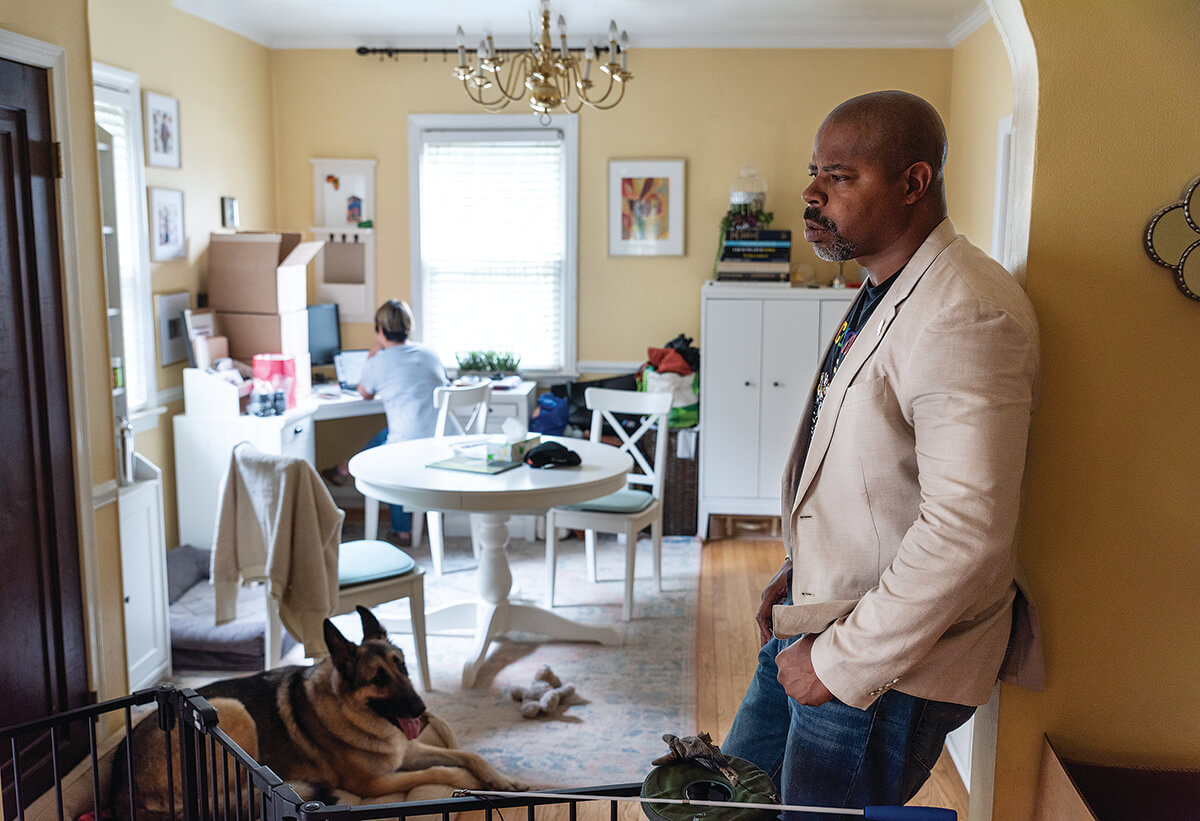
So CARE goes where the need is—raising funds for preventative veterinary care and assisting other organizations that serve those communities. That’s just one part of what CARE, the first national animal welfare organization of color in the United States, focuses on.
“Everything that’s involved with animal welfare is almost entirely white,” says Evans. “All the policies around animal control, animal protection, spay/neuter laws, breed specific legislation, home insurance—all of these animal welfare policies negatively affect brown and Black people, especially in marginalized communities.”
For example, Evans says the homeowner’s insurance in his Towson neighborhood allows him to keep his German Shepherd, Guapo, but Guapo wouldn’t be permitted in the neighborhood where Evans grew up because there are breed restrictions tied to certain areas. Code specific policies like that are steeped in prejudice and bias, he says.
CARE has an Environmental Justice and Policy arm led by policy expert Akisha Townsend Eaton who is working on these very issues. “We’re creating a space where passionate animal owners and practitioners and advocates, dog trainers, groomers, all of these folks are welcome into this space without fear that they’re going to be judged just for their physical presence,” says Evans.
He also references pet retail—a $100 billion industry. People of color don’t even own one percent of that field, says Evans. The same goes for veterinarians. There are 60,000 small animal veterinarians—and, according to Evans, less than two percent are Black. So CARE has a scholarship to fund Black veterinarians attending school.
“This year, we raised $130,000 for Tuskegee students, [a historically black college and university] with the most Black veterinary students enrolled in the country.”
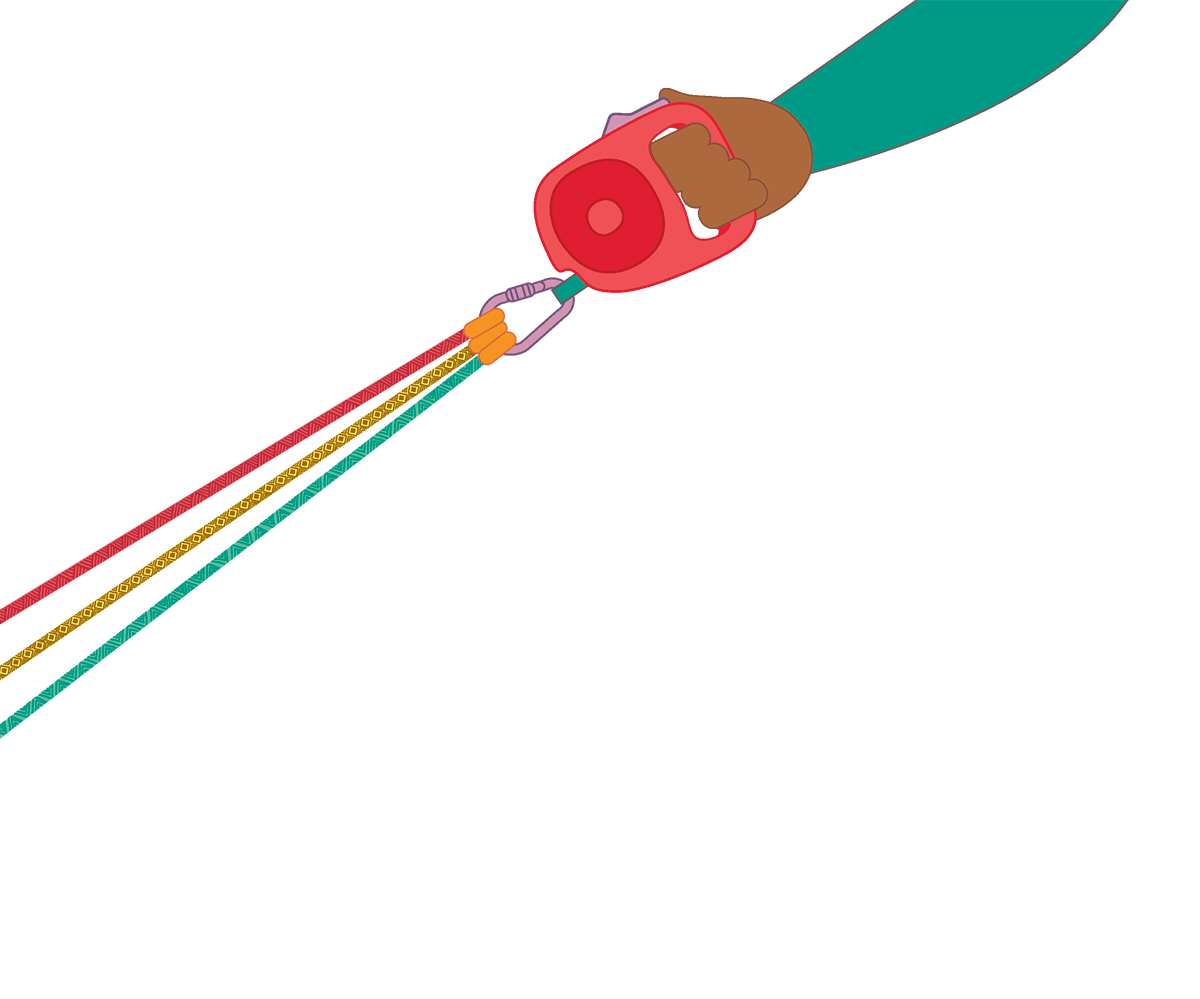
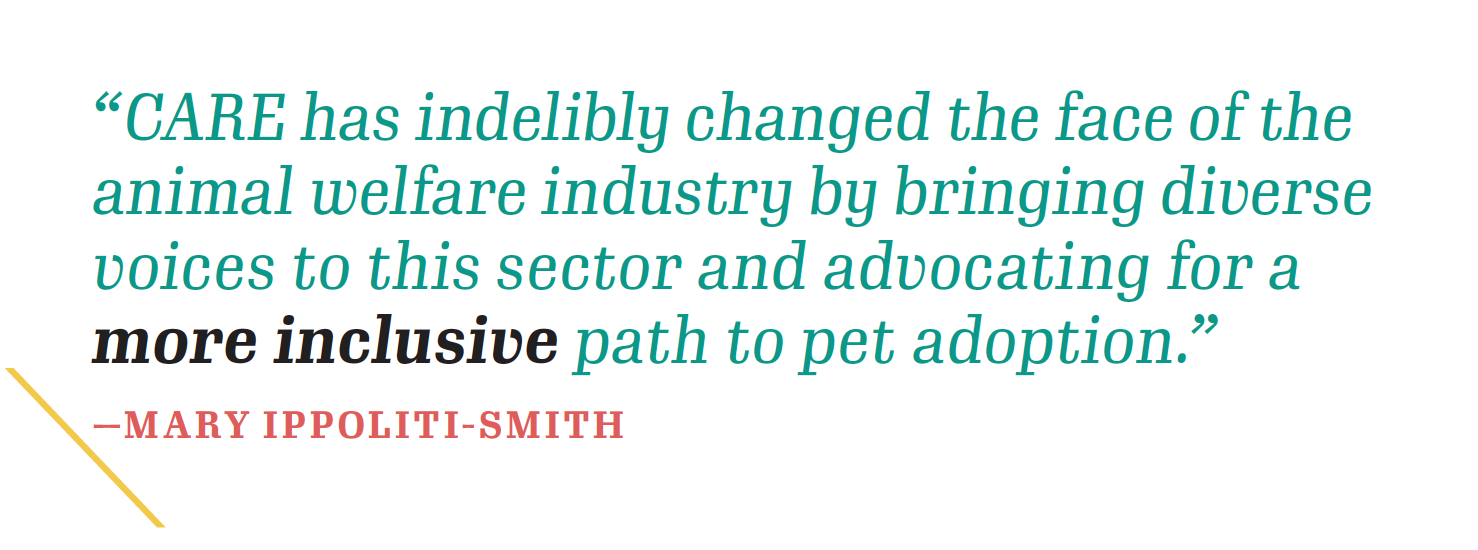
Evans is a talker. He loves to pontificate about weighty topics. He’ll talk racism and the caste system, collective power, skin color, reciprocity, the roots of slavery, and white dominant spaces. As a Black man, despite everything he’s experienced and witnessed, he’s not bitter—it’s just fueled him to do more.
“CARE is not just a nonprofit—we are a nonprofit that starts nonprofits,” says Evans. They’ve funded over 15 new organizations—many existing in some of the most underserved communities in the United States. Evans says that is how he measures the success of CARE—by watching people who are commonly rejected from the system come into their own. “They blossom inside of this protective unit that we’ve created. We’ve got unbelievably brilliant folks with tattoos on their necks and long earrings or hoops and we engage with them, and they can be their full selves. These are people that cannot get shelter jobs, cannot get jobs
cleaning up poop, cleaning kennels, but now they’re executive directors of their own organizations.”
Mary Ippoliti-Smith, a member of the executive leadership team for Maddie’s Fund, a foundation that has awarded over $265 million in grants, including many of Evans’ missions, sees that firsthand.
“CARE has provided a safe and thriving haven for passionate activists and deep thinkers focused on better outcomes for people and pets,” she says. “The organization is unique in that they are not attempting to do the work best done by those directly impacted by inequities. They are, however, creating resources and opportunities for marginalized people to rebuild their own communities.”
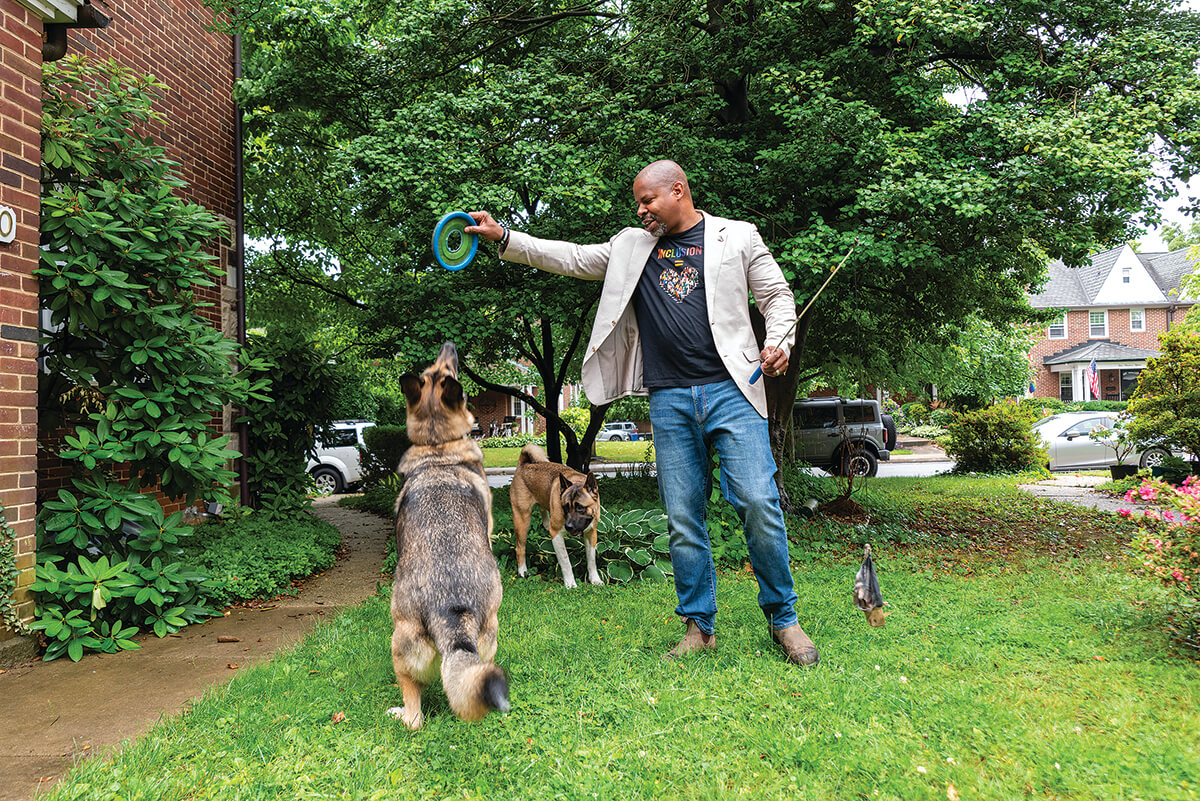
Ippoliti-Smith says it’s impossible to overstate what a significant impact CARE has had. “CARE has indelibly changed the face of the animal welfare industry by bringing diverse voices to this sector and advocating for a more inclusive path to pet adoption,” she continues.
Alexandre Contreras, the founder and president of PetTrio Charity in south Florida, is what’s called a proximate leader, a term used for leadership that reflects the identity of the people they serve. He has a gregarious spirit and a passion for animals that he shows by working as a vet tech, speaking to Miami Dade public school students about careers in veterinary medicine, and constantly thinking how to better improve the pet industry. That includes inventing the KlipTrio, a 3-in-1 pet nail clipper. CARE was his first investor, and because of them he was able to hire lawyers to have his product patented.
Through his charity, also supported by CARE, Contreras has been able to help people who can’t afford treatment for their pets. Recently that included someone who came into the vet clinic where he works. Seeing the reaction of pet owners in real time was life affirming.
“This is what philanthropy feels like,” says Contreras, who has made it his mission to help as many folks as he can, “doing something and wanting nothing in return. It’s so soothing to the soul.”
Many of the people now emerging as leaders in the animal welfare arena look like the same people Evans grew up with who were often simply judged by their appearances, something Evans has experienced himself as a Black man.
Time and time again it’s been proven “you can’t show up at work as your full brown, urban, whatever self,” says Evans. “And so, we’re creating a space where people can speak in the accent of their choice, they can be their whole selves, and they can help animals because animals don’t care.” He pauses. “And that is the beautiful part of it. There’s no animal starving on the street that cares whether or not a woman with big earrings and long fingernails is the one who is feeding them.”